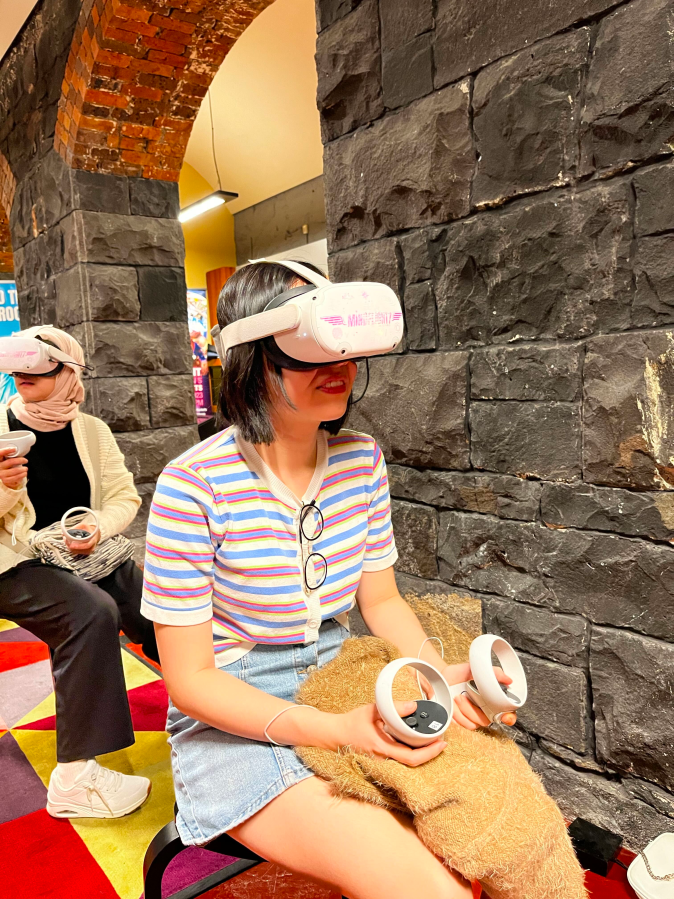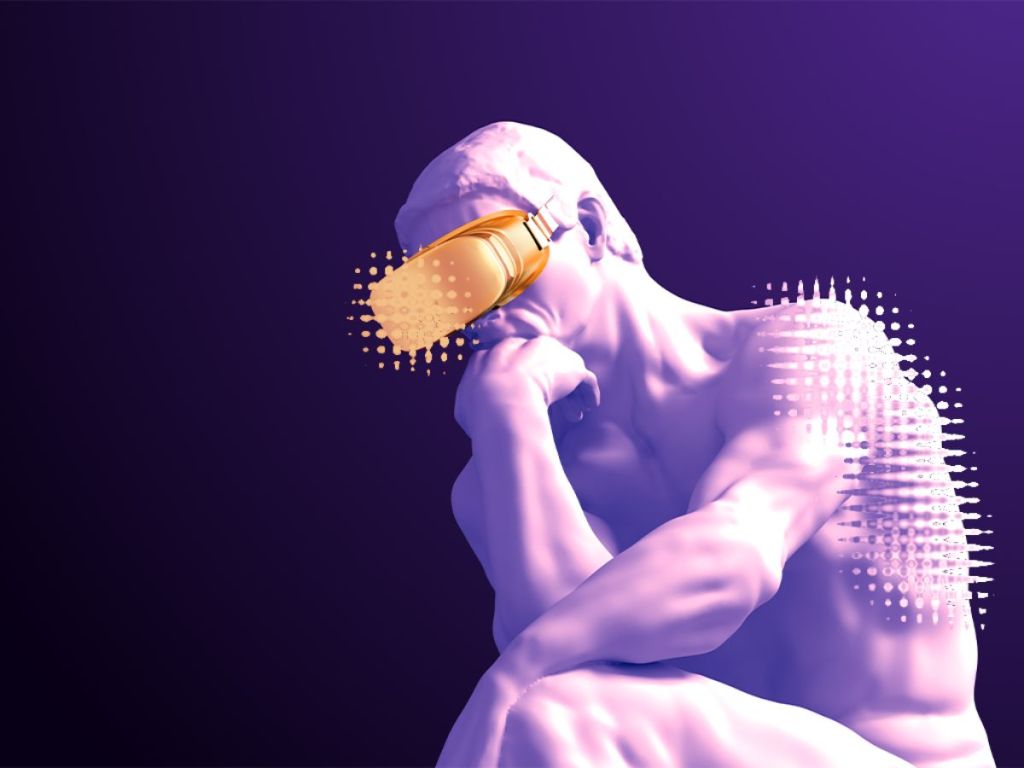It is the end of the work week, and typically I’ll go for a massage or grab bubble tea to treat myself. However, this time I decide to swap those experiences for a VR meditation session at Melbourne CBD. Yes, I am going to meditate in the metaverse.
VR meditation: Do I close or open my eyes?
The Mindfulness Experience is at the Immigration Museum in the Melbourne CBD, only a couple of minutes from my place. The session is free.
I go in after dinner at 7pm, just as I’m drifting into a food coma. Do I need a yoga mat? Sports bra? Nope. All I need is a VR headset, which is, of course, provided. It’s the Meta Quest.

The session is at first a little confusing. We are placed in a virtual environment called Nature Treks VR. It’s a 360 degree recreation of different natural environments — like the beach, meadows, snow-coated forests — in virtual reality, and the player is able to interact with several objects. Relaxing music plays in the background. There’s no real objective to this; the aim is to just let the player kick back, breathe and relax in virtual nature.
As a Buddhist who is beginning to learn meditation, integrating VR with a rejuvenation practice that demands one to sit still and be zen is a conflicting experience. One main issue is that I am unable to decide whether or not to close my eyes — as you typically do when you relax and meditate — or keep them open to take in the virtual sights and sounds.
Does it subvert what meditations should look and feel like? Perhaps. But towards the end of the 45-minute session, I adjust to the experience. I think it’s a mental barrier issue, and if you’re able to overcome the preconceived notion of what a mindfulness experience is supposed to be, and get used to 360-degree virtual nature, VR meditation is a wonderfully novel experience.
Apps like Nature Trek VR are immensely helpful to homebound individuals or seniors who are unable to go outdoors. There is no commentary, no real objective, no rewards for levelling up, no side quests – just vibes.
VR is not just for video games
Kajal Pala, founder and CEO of Mindflight7, tells me that it’s actually the company’s first time organising a group VR meditation session for adults. This is because Mindflight7 focuses on delivering VR experiences to high school students.
This event is to raise awareness among adults in regards to VR’s potential to deliver immersive experiences for just about anything. To let them know that VR is more than just children’s video games like Roblox or Minecraft.
“What we’ve noticed when we run programs in schools is that the students find VR amazing, but many teachers don’t understand what it is,” Pala said.
VR will disrupt the wellness industry and expand its possibilities. Pala says the VR meditation event is to “bridge a gap” between youths and parents when it comes to engaging with immersive technology. In other words, the boomers might need to catch up… 😜
Virtual reality’s use cases
Sure, outside of the classroom, kids primarily use VR for gaming. But with startups like Mindflight7 and experiences including the Melbourne International Film Festival (MIFF) XR, VR is rapidly expanding.
“With VR, [players] still get the same component of education, curriculum and learning outcomes that you’d otherwise obtain in a regular classroom environment,” Pala said. “The key difference here is things are gamified in a way that makes learning fun and memorable.”
The Mindfulness Experience is part of the City of Melbourne’s Neighbourhood Circle Nights, which includes live music, art, food and future technology.





